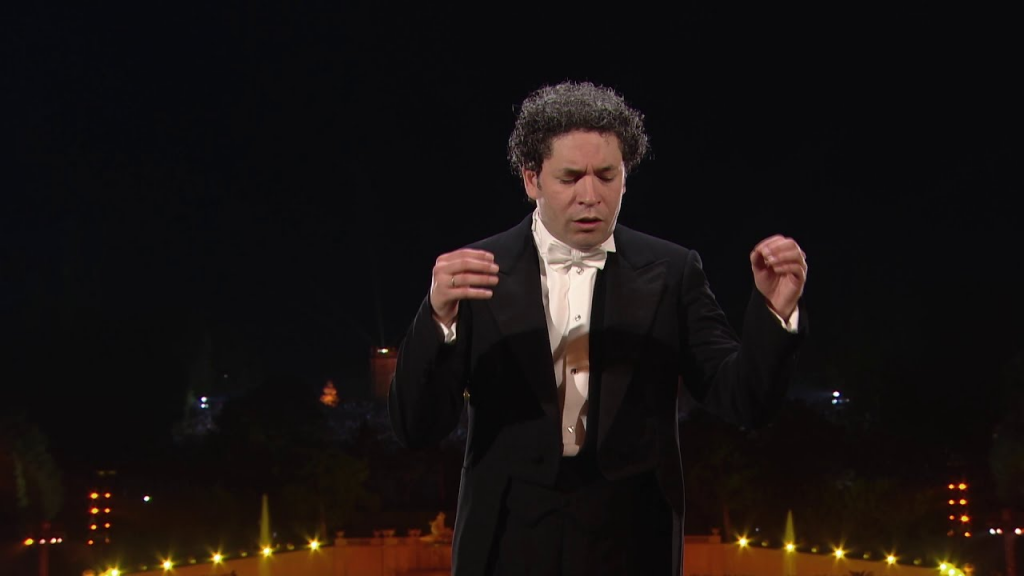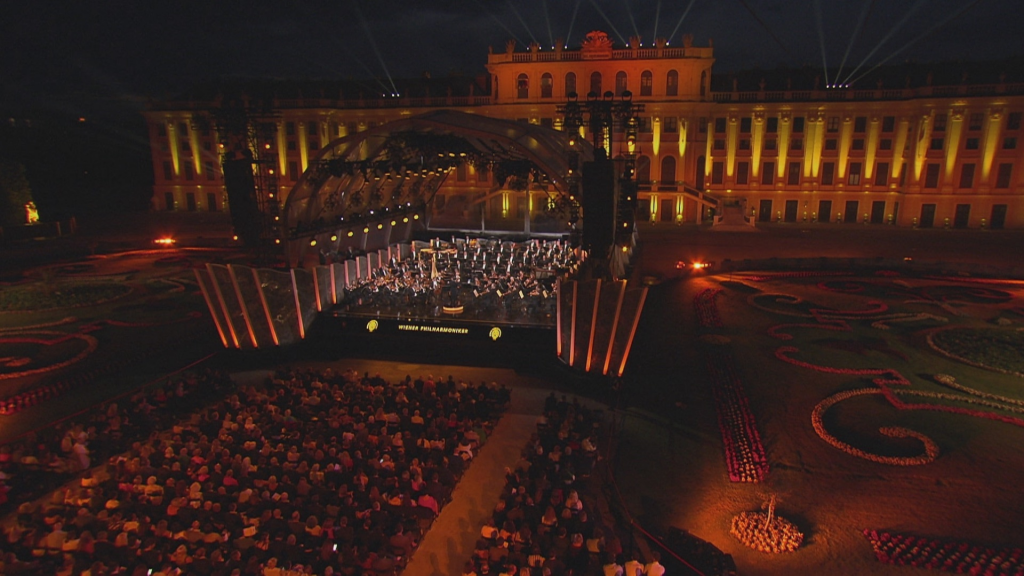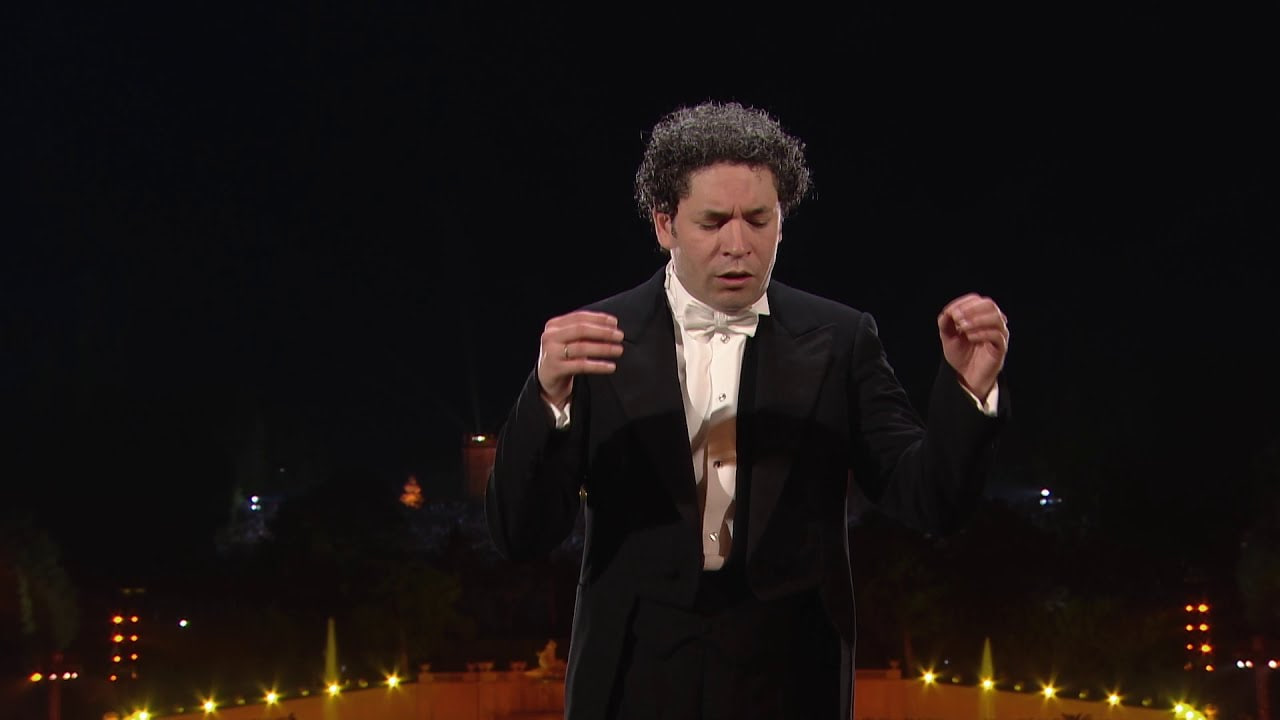In the golden evening of July 5, 2019, the Vienna Philharmonic, under the fiery baton of conductor Gustavo Dudamel, delivered a spellbinding rendition of Samuel Barber’s Adagio for Strings during their annual Summer Night Concert at Schönbrunn Palace in Vienna. Known for its emotional depth, this performance resonated deeply, reminding listeners why Barber’s composition is often called “America’s music for mourning”
A Masterstroke of Grief and Grace
Adagio for Strings was originally composed in 1936 and premiered by the NBC Symphony under Arturo Toscanini in 1938 . With Dudamel wielding the baton, the piece soared through baroque gardens, transforming grief into a collective ceremony of remembrance. Critics praised the Vienna Philharmonic’s “sheer beauty” and dynamic control, attributing much of its power to Dudamel’s exuberant direction

Why This Performance Still Moves Us
- An emotional core: Barber’s haunting string melodies tap into universal sorrow—each rise and fall of the orchestra feels like a heartbeat.
- Conductor’s signature: Dudamel infuses youthful intensity and expressive nuance, making the familiar more urgent and personal .
- Vienna Philharmonic’s unparalleled tone: Their luxurious string sound adds spaciousness and clarity, making each note shimmer under the night sky.

An Afternoon to Remember

Broadcast in over 60 countries, this concert showcased not just Barber’s American classic, but the orchestra’s ability to heal through melody. Against the summer dusk, the music felt both intimate and monumental—turning a palace lawn into a sanctuary.
The Resonance of Adagio
Barber’s piece has echoed through history—from radio broadcasts at Roosevelt’s death in 1945 to performances at JFK’s funeral in 1963 and 9/11 commemorations. In 2019, Dudamel and the Vienna Philharmonic added a fresh chapter, showing that even decades later, the work’s essence remains hauntingly relevant.
This Adagio wasn’t just a performance—it was pure emotion made audible. Dudamel and the Vienna Philharmonic proved that great art transcends time: a string-laden elegy from America’s past found perfect voice in Vienna’s summer night. For those seeking solace—or simply the power of music at its most affecting—this rendition is a timeless touchstone.
